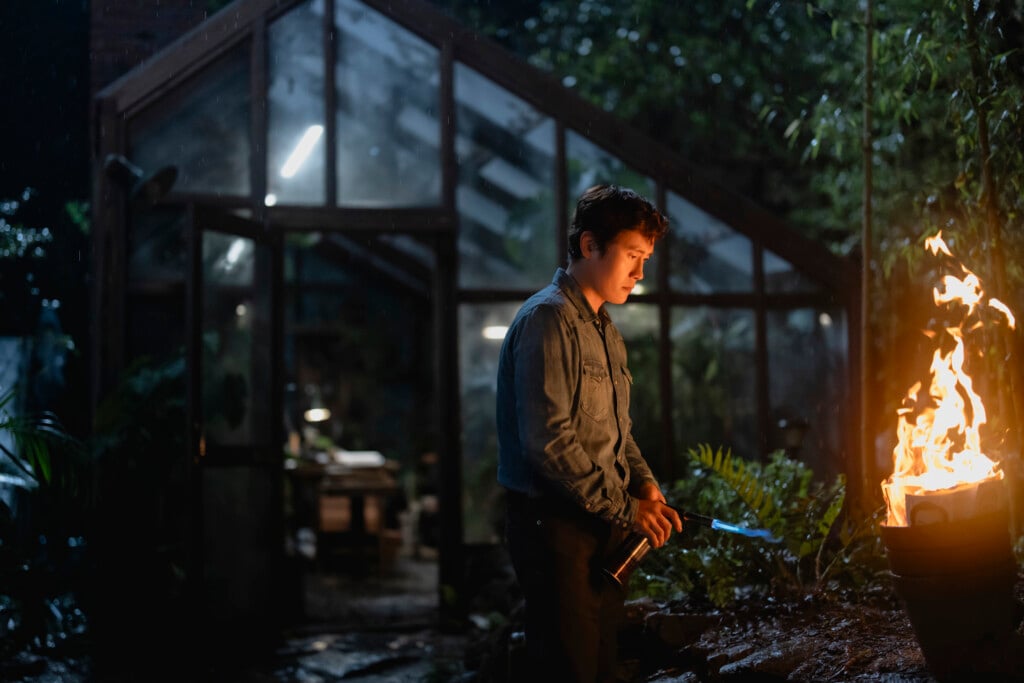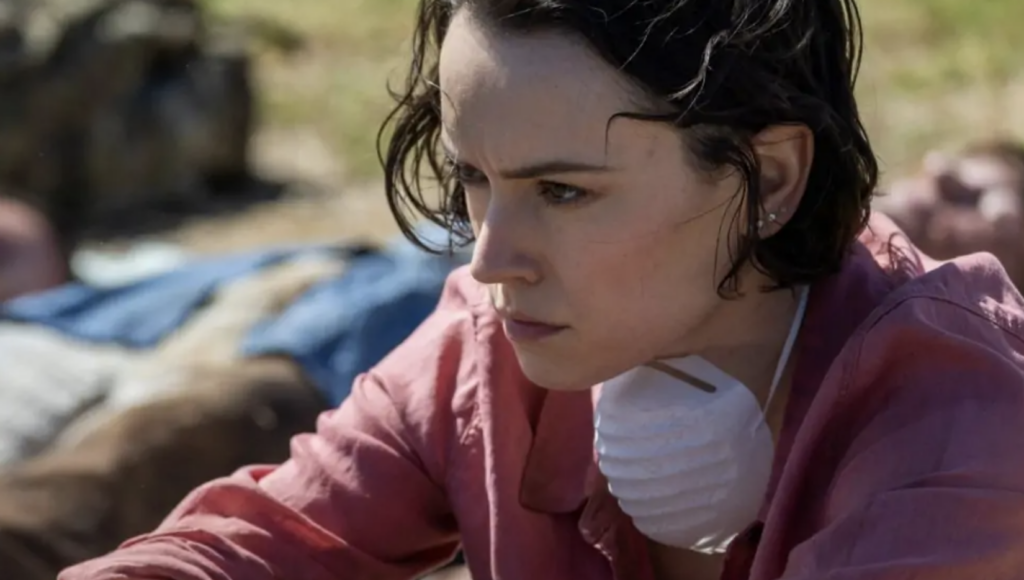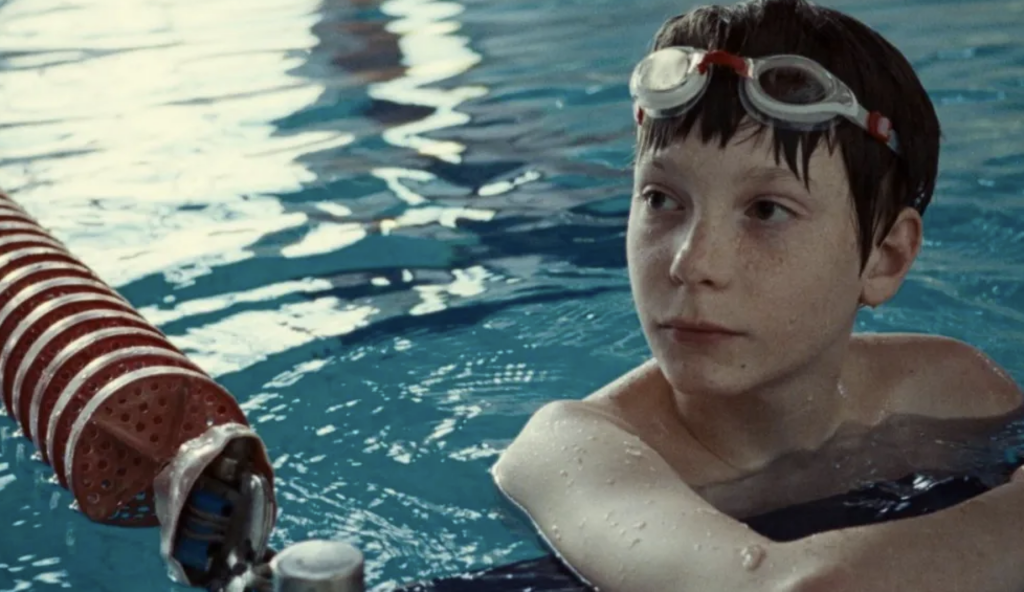Annie Baker’s lovely Janet Planet is a cinematic love letter to your younger self
I hate to start a review with a phrase like “Only 90s kids will get this,” but it’s probably true that for viewers of a certain age, Annie Baker’s lovely Janet Planet hits a certain way that it won’t for people who haven’t experienced the world it takes place in.
Set in 1991 in rural Massachusetts, Baker’s story of shy, awkward 11-year-old Lacy (Zoe Ziegler) and her acupuncturist single mom Janet (Julianne Nicholson) is characterized by shopping mall trips, oversized t-shirts with loud prints, FIMO clay projects, The Babysitter’s Club books, and Jean M. Auel novels. It is, as the kids who are too young to have appreciated many of these things when they first existed say, a vibe.
This is the part of Janet Planet that draws you in, but it’s not (or at least not exclusively) what makes it feel sacred. That belongs to writer-director Baker’s incredible sense of presence and patience and her ability to capture moments in a way that feels like we’re living someone else’s memories. Janet Planet is a story about a mother and daughter approaching a crossroads in their relationship. It’s also a loving examination of the fleeting, precious nature of childhood right at the moment when its protagonist moves from primarily observing the world around her to actually understanding it.
Lacy is very attached to her mom, so much so that when we meet her, she’s sneaking out of her bunk at summer camp to ask Janet to come get her early. She has no friends, she claims, though that idea is quickly debunked by all the other campers who are sorry to see her go. Lacy goes home to spend the summer with her mother and a series of people who come into their lives—Janet’s boyfriend Wayne (Will Patton), her old friend Regina (Sophie Okonedo), and Avi (Elias Koteas), Regina’s artist ex.
There’s not much plot to Janet Planet, though the ultimate arc is that of Lacy starting to understand her mom as a complex person who makes choices she doesn’t always agree with—and, in turn, of Janet starting to tire of Lacy’s clinginess. Rather, the movie is made up of moments that illustrate their lives together, and where they’re going. We watch as Lacy carefully sets up her dollhouse, complete with mismatched dolls and scrap fabric blankets. We watch her walk to her piano lesson and play music on her battery-powered Casio for Janet, who’s mourning a breakup, and offers Lacy a distracted word of praise while she sips a glass of white wine.
While Janet does have, as Regina notes, “terrible taste in men”—as well as a pseudo new-age lifestyle that routinely puts her in the path of uniquely screwy people—Baker never judges her harshly. Janet is a good mom, or at least she’s trying her best. Nicholson gives her a motherly warmth and frankness, but also a sense of weariness; this is a woman who loves her kid, but craves true adult companionship that an 11-year-old (even a very smart one) can’t give her.
The lanky, bespectacled Ziegler is perfectly cast as Lacy. She’s kind of a homely, introspective kid, but sharply observant. Many of the shots we see of Lacy are of her watching other people—her mom, Regina, Wayne, her piano teacher—and starting to see them in ways she hasn’t before. Baker switches between moments of Lacy processing what she sees and quiet, personal moments where she’s still doing stuff we’d expect a kid to do: biking through the woods, lying in the backyard or watching TV. Lacy’s at a fragile, permeable moment in her existence, and Baker is perfectly happy to let the character explore that on her own terms while the rest of us remember how we felt at that same age.
All of this, plus the film’s natural light-dependent cinematography from Maria von Hausswolf, all helps to create a sense of place, time and relationship that we don’t need explicit statements in order to understand. You know people like Janet and Lacy; if you grew up in a place like Lawrence, they may be an almost perfect copy of your childhood, or your best friend’s. Even if you’ve never been to Massachusetts, you already know the world they inhabit; it’s so thoroughly illustrated that there are moments you’d swear you could touch or smell.
Baker has created a tender pocket of time that’s both universal and hyper-specific, and it feels natural to want to protect everyone in it with your life. The level of care and patience it exhibits toward its characters—especially toward its young female lead—is rare. For those who grew up in the era it depicts, it also feels like an invitation to revisit your younger self, and hold them gently and lovingly for a little while.






